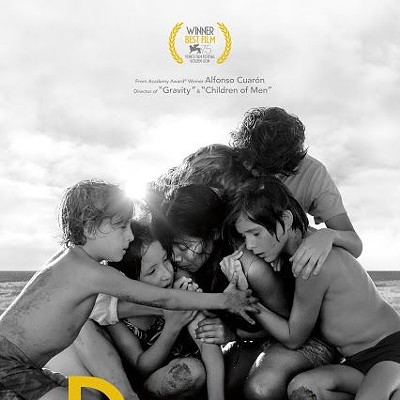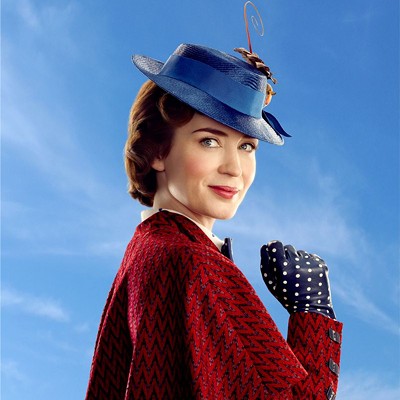Shoot ‘Em Up **
A confirmation has proven difficult to nail down, but it’s long been rumored that Clive Owen, who was seriously considered for the role of James Bond, turned it down early in the series revamping process, presumably because the Oscar-nominated Closer actor wanted the freedom to explore more serious fare. But if Shoot ‘Em Up — the antithesis of “serious fare” — is any indication, Owen turned down the role because — let’s face it — Bond is kind of a wuss when compared to the he-man Owen plays in this nonstop demolition derby of a movie. Certainly, 007 bedded his share of women in the Ian Fleming franchise, and plugged holes through an endless succession of villainous henchmen. But both at the same time? A piece of cake for Owen’s singularly named Smith, who never experiences coitus interruptus with sex partner Donna Quintano (Monica Bellucci) even as he rolls around the bed and floor (and slams up against the wall) simultaneously banging Ms. Quintano and bang-banging the baddies. Clearly, Shoot ‘Em Up is simplistic, nihilistic, misogynistic, sadistic and just about any other “-istic” that comes to mind. Just as clearly, this is the movie that writer-director Michael Davis obviously wanted to make: It’s a picture with a purpose, and that purpose is to shoot first and never get around to asking questions later. Sharing some plot DNA with Eastern Promises, the story involves the protection of a newborn (and instantly orphaned) baby by folks who want to keep the child out of the clutches of murderous mobsters.
Eastern Promises ***
One of the central gags in Knocked Up involves the efforts of Seth Rogen and his pals to create a website that catalogues all the nude appearances made in motion pictures by actresses of all ranks. Of course, sites of this nature really do appear all over the Internet, though it’s unknown (at least by me) if a similar site exists that tackles male movie-star nudity with such dedication. If so, then Viggo Mortensen’s turn in David Cronenberg’s Eastern Promises will be right at the top of the site’s “Most Searches” list. In one of the climactic scenes, Mortensen’s Nikolai Luzhin, a taciturn chauffeur who works for the Vory V Zakone outfit (the Russian mafia) in London, is relaxing in a steamroom when he’s attacked by two knife-wielding (and clothed) assassins. Without time to even pick up his discarded towel, he ends up fighting both assailants in the buff, and thanks to cinematographer Peter Suschitzky’s camera angles, we can examine Mortensen from vantage points that even his personal doctor probably hasn’t seen (it’s astonishing that the prudes on the MPAA board gave the film an R instead of an NC-17). Some might think that Cronenberg is merely giving the ladies in the audience equal time, but on a thematic level, the skirmish makes sense: Nikolai has been living a life full of betrayal and deceit, and it’s time to strip down to his essence in order to make an attempt to reclaim his true identity. In a sense, Eastern Promises is a bookend to the last film made by Cronenberg and Mortensen: 2005’s excellent A History of Violence, about an ordinary cafe owner who may or may not have been a vicious mobster in his earlier years. Both films run along parallel tracks, full of whispery menace, marked by probing studies of masculinity at its extreme boundaries, punctuated with bursts of sexual and violent excess, and coping with abrupt endings. As the mob driver and occasional enforcer, Mortensen delivers a measured and restrained performance, whether dealing with the drunken son (Vincent Cassel) of the powerful crime lord (Armin Mueller-Stahl, absolutely chilling as the soft-spoken yet vicious kingpin) or trying to protect a hospital midwife (Naomi Watts) whose recovery of a dead prostitute’s diary places her right in the middle of a particularly sordid scenario.
The Brave One **1/2
The Brave One is basically a retread of Death Wish, only with a sex change for its protagonist and, given the director (The Crying Game’s Neil Jordan) and star, a more distinguished pedigree. It also purports to add dramatic heft to the moral implications of the situation at hand, with an ad line that blares, “How Many Wrongs To Make It Right?” But the movie itself clearly doesn’t believe in its own promotion, resulting in a finished product that works as exploitation (like Death Wish) but fails at anything more socially relevant. Jodie Foster stars as Erica Bain, the host of a particularly dreadful-sounding NYC radio show called Street Walk. She and her fiancé David (Naveen Andrews) are blissfully happy, but everything changes after a brutal attack by street punks leaves David dead and Erica in a coma. Once Erica awakens, she’s become a different person, afraid of the city she calls home and terrified by even the thought of leaving her apartment. Mustering up her courage, she goes out and illegally buys a gun for protection. But quickly learning that happiness is a warm gun, she sets about using the weapon on anyone who threatens her, from punks on the subway to a killer in a convenience store. Detective Sean Mercer (Terrence Howard) obviously has no love for the victims, but he feels that it’s nevertheless his duty to stop this vigilante. Via a massive coincidence, he also becomes friends with Erica, little suspecting (at least at first) that she and the vigilante are the same person. Obviously believing they’re creating something meaningful, Jordan and scripters Roderick Taylor, Bruce A. Taylor and Cynthia Mort add superfluous moments that lessen rather than heighten the story’s impact. Still, the very setup of the movie makes it impossible not to line up firmly behind Erica, and on that primal level, The Brave One delivers the goods, as a string of evil men get what’s coming to them. Foster is rarely less than excellent, but for years now, she’s settled into making movies in which she portrays a largely desexed woman who’s all business and no pleasure (Panic Room, Flightplan, Inside Man, etc.). Mind you, I’m not suggesting an insipid romantic comedy opposite someone like Bruce Willis, but I’m sure there’s a happy medium to be found somewhere.
3:10 To Yuma ***
3:10 to Yuma proves to be a rarity among remakes. It doesn’t slavishly copy the original, nor does it update it for modern times. Based on a short story by Elmore Leonard, the 1957 3:10 to Yuma retains its status as a solid Western, typical of the psychologically rooted oaters that emerged in force during that decade. Adding roughly a half-hour to the original’s 92-minute running time, the new take, directed by Walk the Line’s James Mangold, includes more characters and more action sequences, but it takes care not to water down the battle of wills between its two leading characters. In Glenn Ford’s old role, Russell Crowe plays Ben Wade, a notorious outlaw who’s finally captured by the authorities and scheduled to be transferred via train to the prison in Yuma, Arizona. Dan Evans (Christian Bale in the Van Heflin part) is a rancher by nature — he’s so mild-mannered that his own wife (Gretchen Mol) and son (Logan Lerman) are often disappointed in him — but because he’s about to lose his home and cattle, he agrees to help transport Wade for $200. Yet while Wade may appear to be the captive, he’s in many ways the one in charge, charming Dan’s family, killing the armed escorts who rub him the wrong way, and keeping Dan on edge with his taunts and bribes.
Mr. Bean's Holiday**
By borrowing from Jacques Tati, Jerry Lewis and silent-cinema icons like Buster Keaton and Charlie Chaplin, Rowan Atkinson managed to concoct his own singularly unique comic creation in the bumbling Mr. Bean. It’s just a shame that the actor has yet to find a feature film to do his character justice. Mr. Bean’s Holiday has some amusing moments scattered throughout but they’re not enough to sustain an entire picture. 
The Nanny Diaries **1/2
Writer-directors Shari Springer Berman and Robert Pulcini, the team behind 2003’s American Splendor, have now returned with an adaptation of The Nanny Diaries, the best-selling (and hotly debated) novel by Emma McLaughlin and Nicola Kraus. As before, Berman and Pulcini attempt to embellish their tale with all manner of visual flourishes and eccentric details, but working from a blueprint that doesn’t always lend itself to such touches, the results are more heavy-handed than before. That’s not to say that this doesn’t offer several rewards of its own making, starting with the strong performances by Scarlett Johansson and Laura Linney. Johansson plays Annie Braddock, a college graduate who, wary of the demands of a career in high finance, ends up landing what she believes will be a less stressful gig as a nanny for a wealthy Manhattan couple known as Mr. and Mrs. X (Paul Giamatti and Linney). Her young charge, Grayer (Nicholas Art), proves difficult at first but over time softens toward Annie, who’s merely the latest in a long line of nannies. A spiritual companion to The Devil Wears Prada (Nanny preceded Prada in print by one year, and in the film, Mrs. X can be glimpsed reading the fashion industry tell-all), this offers some nicely staged sequences to help gloss over the broad characterizations.
Rush Hour 3 *
Exactly 50 years ago, Max Von Sydow was exploring philosophical issues of life and death in Bergman’s masterpiece The Seventh Seal; now, he’s shunted to the background to make room for the increasingly unfunny antics of Chris Tucker. If there’s a more depressing commentary to be made on the current state of cinema, I can’t imagine what it might be.
The Bourne Ultimatum ***
The third time’s the charm with The Bourne Ultimatum, the best in the series of films based on the popular novels by the late Robert Ludlum. Matt Damon, suitably taciturn even though he’s still too young for the role, again stars as Jason Bourne, the former CIA assassin whose continuing bout of amnesia regarding his past perpetually keeps him searching for the truth, even as his agency handlers seek to have him terminated. Taking over villainous duties from Chris Cooper and Brian Cox is David Strathairn, cast as the latest government suit hoping to protect his own nefarious interests by taking out Bourne.
Becoming Jane **1/2
Given the glut of exemplary films based on the works of Austen, the only sound reasons to create a movie based on Jane herself would be either to suggest some insights into what turned this country girl into one of the most acclaimed writers in the English language or to provide a comprehensive overview of her life and times. But Becoming Jane prefers to take a more narrow view, trumping up the details of her brief flirtation with a dashing rogue named Tom Lefroy, who would later become Lord High Justice of Ireland. Anne Hathaway, all-American in The Devil Wears Prada and Brokeback Mountain, adopts a British accent and makes for a lively Jane. 
The Simpsons Movie ***1/2
Crafting a motion picture from a current television series that’s been around for nearly two decades is a dicey proposition, but The Simpsons Movie fills the larger dimensions of the theater screen quite nicely. Running the length of four combined episodes, this flick takes Homer’s weekly display of idiocy to a new level, as his bumbling disrespect for the environment leads to Springfield being blocked off from the rest of the world by a giant dome, with the town’s destruction the ultimate goal of the overzealous head of the Environmental Protection Agency (voiced by Albert Brooks, billed in the credits as “A. Brooks”). Knowing that Homer is the culprit, the town’s residents soon come a-calling with torches in hand and nooses hanging from nearby trees (baby Maggie’s rope has a little pacifier attached). But if there’s one area in which Hollywood remains blissfully, even blessedly, optimistic, it’s in the strength of the family unit, and as long as Homer, Marge, Bart, Lisa and Maggie stick together, they can lick any and all odds.
Hairspray ***1/2
One of this summer’s few out-and-out delights, smoothing out but never compromising the issues that made John Waters’ original film such a quirky delight. An ode to being different, Hairspray stars delightful newcomer Nikki Blonsky as Tracy Turnblad, an overweight teenager who won’t let her pleasantly plump figure get in the way of following her dream in 1960s Baltimore. And her dream is to become famous, preferably by showing off her dance moves on The Corny Collins Show, a local American Bandstand-style program that’s a hit with the kids. Her obese mom Edna (John Travolta in drag) is afraid her daughter will get hurt, but her dad Wilbur (a warm Christopher Walken) encourages her to go for it. Impressing Corny Collins himself (X-Men’s James Marsden), not to mention the show’s reigning pinup star Link Larkin (Zac Efron), Tracy does indeed land a coveted spot on the show, much to the disgust of Link’s girlfriend Amber Von Tussle (Brittany Snow) and her wicked mom Velma (Michelle Pfeiffer). Compounding the tension is that Tracy has become friends with the blacks who are allowed to perform on the program once a month (on “Negro Day”), an open-minded attitude that infuriates the racist Velma to no end. The film’s hot-topic issues are all presented in the realm of feel-good fantasy, meaning that reality has no place in this particular picture. But that’s not to say the movie is insincere in its intentions, and when Tracy and “Negro Day” host Motormouth Maybelle (Queen Latifah) lead a march promoting “Integration, Not Segregation,” it’s hard not to get swept up in the emotionalism of the piece. Yet the movie’s first and foremost a musical, and director Adam Shankman does a commendable job of filming the song-and-dance routines in a manner that accentuates the total skills involved (the noticeable lack of rapid MTV-style cuts is greatly appreciated). All of the principals are allowed to belt out at least one number apiece, and their enthusiasm and energy is positively infectious. The weakest cast link is, perhaps surprisingly, Travolta, who may have enjoyed returning to his movie musical roots (Saturday Night Fever, Grease) but nevertheless fails to adequately fill the large shoes of the late Divine, who was simply, well, divine in Waters’ ‘88 screen version. (Harvey Fierstein, a more logical choice than Travolta, played the part on Broadway.) As for John Waters, he stuck around to make sure that the circle’s complete. Look for him in a split-second cameo at the beginning of the film: He’s the pervert who flashes a trio of housewives on the street.
Harry Potter and the Order of the Phoenix ***
Those who like their Potter black will find much to appreciate in Harry Potter and the Order of the Phoenix, the fifth and moodiest of the J.K. Rowling adaptations to date. Chris Columbus’ first two entries — both underrated — focused mainly on fun and games, with the subsequent installments helmed by Alfonso Cuaron and Mike Newell taking on decidedly darker dimensions. The level of malevolence is raised even further here, thanks to the taut direction by unknown David Yates and a forceful performance by series lead Daniel Radcliffe. With only one to two years separating each Potter flick, it’s been easy to spot the relative growth of Radcliffe (as well as costars Rupert Grint and Emma Watson) as he sprouted from wide-eyed tyke to troubled teenager. Yet between the last film (Goblet of Fire) and this new one, it’s startling to note how the actor and the character seem to have aged multiple years, a testament to the maturity and intensity that Radcliffe brings to the role. Villainy abounds in The Order of the Phoenix, with Lord Voldemort (Ralph Fiennes) haunting Harry’s every move, a fluttering fascist named Dolores Umbridge (Imelda Staunton) taking over the Hogwarts school, and an escaped prisoner known as Bellatrix Lestrange (Helena Bonham Carter) arriving late to kill off a popular character. Add to those threats Harry’s issues of abandonment and estrangement, and it’s no wonder the lad can’t keep those roiling emotions in check. In this respect, Phoenix operates not only as a story-specific fantasy flick but also as a universal teen angst tale, a far-flung Rebel Without a Cause in which the protagonist tries to comprehend the adult world he’s on the verge of entering while simultaneously struggling to cut the umbilical cord of childhood. Because of this slant, this emerges as the most dramatic of the five films to date. 

























